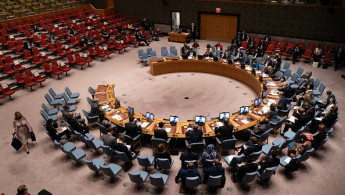UN Security Council calls for violence de-escalation in Yemen, nationwide ceasefire
The UN Security Council called Wednesday for "de-escalation" in Yemen in a unanimously adopted statement to counter "the growing risk of large-scale famine" in the country.
The 15 council members "stressed the need for de-escalation by all," demanded an immediate nationwide ceasefire and called for an end to the escalation by Houthis in the strategic city of Marib.
They also "condemned the recruitment and use of children, and sexual violence, in conflict," according to a statement.
"The members of the Security Council expressed grave concern for the dire humanitarian situation, including prolonged starvation and the growing risk of large-scale famine," the text said.
Their communique called on the Yemeni government to facilitate "regularly and without delay" the entry of fuel ships into Hodeida port, and for all parties to ensure "the free flow of fuel inside the country to deliver essential commodities and humanitarian aid."
The UN body also repeated its concern over "the grave threat posed by the Safer oil tanker."
Anchored off the coast of Hodeida, the 45-year-old fuel vessel FSO Safer has been at risk of sinking or exploding for several years.
The council says Houthis are responsible for the situation, as they refuse to allow the UN to conduct any assessment of the ship.
Houthi rebels and government forces have been fighting a devastating war since 2014, when the Iranian-linked Houthis seized the northern capital Sanaa.
Since 2015, a Saudi-led coalition has intervened to support struggling loyalist forces against the rebels.
The war in Yemen has plunged the poorest country on the Arabian Peninsula into the world's worst humanitarian crisis, according to the UN, pushing the population to the brink of starvation.
Tens of thousands of people, mostly civilians, have been killed and millions displaced since the conflict began.





 Follow the Middle East's top stories in English at The New Arab on Google News
Follow the Middle East's top stories in English at The New Arab on Google News


